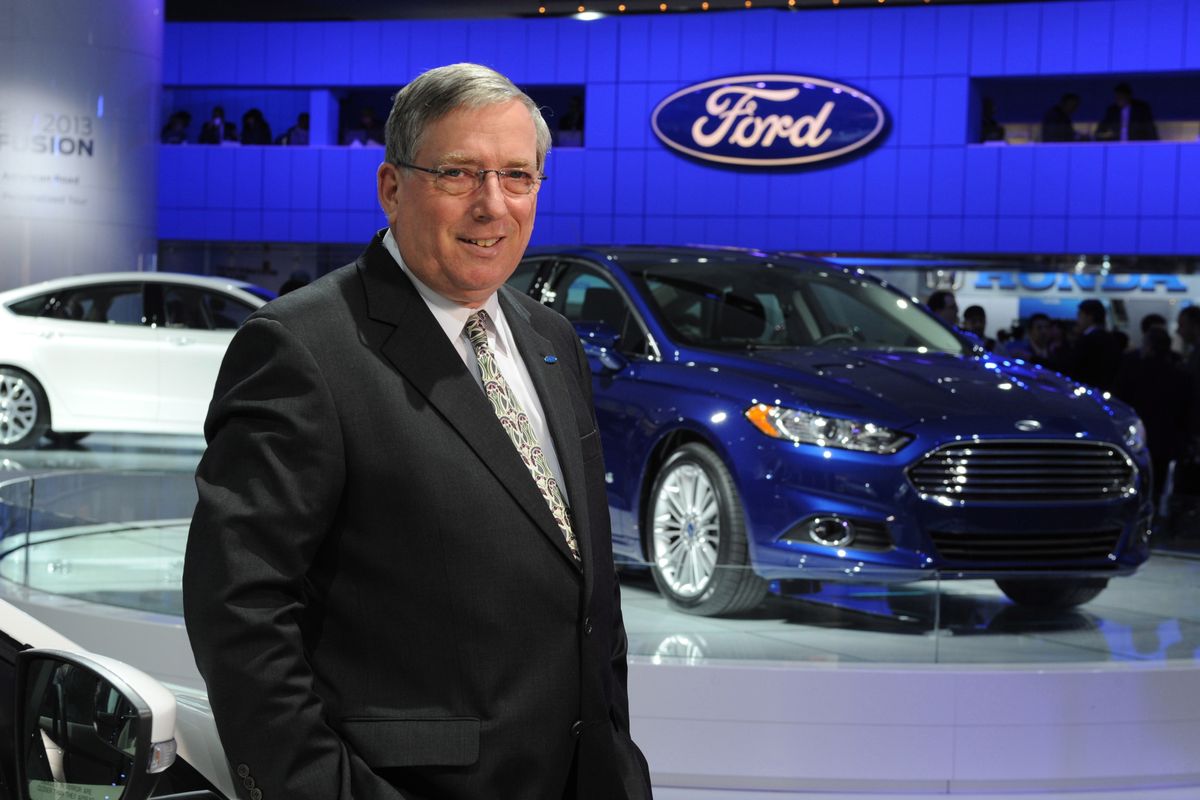Two top leaders at Ford retiring
CEO Mulally, who led turnaround, will stay

DETROIT – Two of the architects behind Ford’s remarkable turnaround are retiring, and their departures have intensified the guessing game over who will become the next CEO.
For now, chief executive Alan Mulally isn’t going anywhere. The energetic, 66-year-old Kansan is considered a hero for bringing the company back from financial disaster. He insisted on Thursday that he’ll continue to lead Ford.
But the retirements of two top lieutenants – CFO Lewis Booth and product development chief Derrick Kuzak – on April 1 remove two of the five inside contenders for the CEO job. Both men helped turn the company around after it borrowed billions in 2006 to stay in business. Kuzak, 60, got Ford to shift from being primarily a truck company to making more cars. Booth, 63, led the company’s financial operations through the banking crisis.
On Thursday, Mulally named their replacements and promised that Ford’s success will continue as it follows the plan that led it to prosperity.
“Nothing’s changing about the way we operate,” said Mulally, whose company last month reported its third-straight annual profit.
Company insiders say the leading candidates to succeed Mulally are now Americas President Mark Fields, Asia Pacific and Africa President Joe Hinrichs, and Ford of Europe CEO Stephen Odell. There’s a slim chance Ford would look outside, but Executive Chairman Bill Ford Jr., whose family controls the company, has repeatedly pointed to a strong bench.
President and Controller Bob Shanks, 59, will become CFO. Vice President of Engineering and Product Development Raj Nair, 47, will replace Kuzak. Mulally said the promotions were part of the company’s succession plan for every top management position, including his own.
Investors shouldn’t be concerned about the retirements or the fact that Mulally hasn’t announced when he’ll leave, said James Schrager, a professor at the University of Chicago Graduate School of Business.
Mulally would risk being a lame duck if he announced a date. “He’s got to maintain very firm control of the business,” Schrager said.
He could stay for four or more years, as long as the company continues to perform well, he said.
“I think that investors today understand that it’s about performance,” Schrager said.